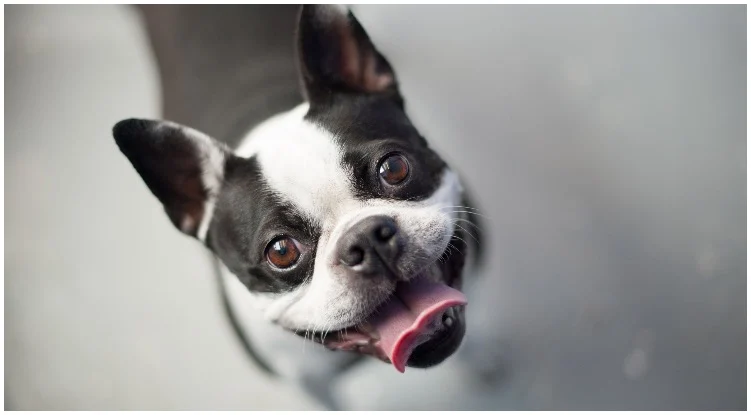Having a puppy means caring for the purest beings on this earth. These adorable creatures know how to make us smile with pure joy. However, two things that you will also have to live with are puppy breath and occasional puppy hiccups. These hiccups can be especially stubborn and last for a longer period of time. However, you might be wondering — Why does my puppy get hiccups in the first place?
In most cases the hiccups that puppies get are similar to the ones of humans. That means that they will be over in only a couple of minutes, at most. But what if they don’t? When should you be concerned about your dog’s hiccups?
Why does my puppy get hiccups?
Hiccups occur when the diaphragm is irritated. The diaphragm is basically the muscle that allows
us to breath. The diaphragm contracts and then relaxes while we inhale and exhale to breathe in and breathe out air.
The diaphragm is most commonly irritated when our puppies drink water or eat food too fast. That causes the puppy to ingest air alongside the water and food.
However, excitement and stress can also trigger hiccups, especially in puppies.
Why are hiccups more common in puppies?
Hiccups are much more common in puppies than in adult dogs. But why is that? Is their diaphragm more easily irritated?
There are different explanations for this. Rapid eating and drinking is more common in puppies than in adult dogs. Puppies are a bit sloppy and therefor ingest more air with their drink or food.
Their energetic play can also be an additional reason. Their rapid breathing pattern can become a huge hiccup trigger.
How can I help by puppy stop the hiccup?
While in most cases hiccups aren’t a reason to be worried, sometimes they can be very stubborn. But there a few ways to help your dog when it seems like the hiccup just won’t stop.
The cures are pretty much the same as the ones that humans use. One of the most common home remedies is giving your dog a small spoonful of honey or syrup.
The honey or syrup will help coat your dog’s throat and soothe the irritation. However, a small sip of water taken slowly can also help sometimes.
Other remedies that you can give a try include: Massaging the dog’s chest or going on a quiet walk. In both cases the motion will help calm down your puppy’s breathing and help the hiccup to stop.
If your dog has frequent hiccups, try to slow down their eating by giving them smaller portions or using a gluper.
When can hiccups become dangerous?
A hiccup becoming a health concern is very rare, however it still happens.
Frequently occurring hiccups in adult dogs that last more than 60 minutes could be a sign that there is something wrong with your canine. In those cases definitely do contact your vet and ask them what to do next.
Prolonged and regular hiccups could be a sign that your dog is suffering from some kind of breathing issues. Other possible symptoms include coughing, sneezing or heavy breathing that isn’t caused by exercise. Some of the conditions that your vet will want to rule out are pneumonia, bronchitis or even some cardiac diseases.
If you live in a hot environment, the high temperatures could also be a trigger. Protect your canine from the dangerous effects of heat or even a possible heatstroke. Heatstroke are life threatening conditions that are especially common in dog breeds such as French Bulldogs or Chinese Pugs. Their muzzles are pretty short which is already reason enough for their breathing to be troubled.
Yet another reason why your canine may won’t stop hiccuping are different gastrointestinal symptoms. These include excessive vomiting, loss of appetite and diarrhea or constipation.
Whatever the reason may be, if your dog is hiccuping for longer than 60 minutes and no home remedies are working, contact your vet and schedule an appointment.
Related articles from our page:
- Why is my dog breathing heavy?
- How long can a dog go without water?
- Why is my dog throwing up?
- How To Induce Vomiting In Dogs?

